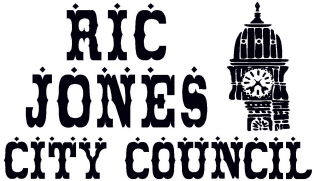Sometimes we have to say no.
Development is happening at a faster pace than ever in recent history in and around Dubuque. The challenge we elected officials and our professional staff deal with in every single development agreement is balancing the public good with the private needs of the developer to build out a successful project.
Contrary to the beliefs of some, each and every development agreement that involves the potential sale or acquisition of city property is presented to the City Council in detail during closed sessions (as permitted by Iowa Statute). Negotiations are done by the City Manager and his staff at the direction of the council. Negotiation status is updated, and direction and/or parameters are set by the Council. While it is the City Manager’s job to make recommendations to the City Council (as also required by Iowa law), the decision to proceed, modify, or back away from any project is solely the City Council’s.
When we are dealing with City-owned industrial parks where the land and improvements on it are owned by the taxpayers of Dubuque we must be particularly aware of the public benefit that would result from any particular development. If a proposed development does not include job creation it is unlikely to receive City Council support. If a proposed development requires additional public infrastructure such as new streets and/or traffic controls there will surely be discussion and negotiation on whether those public improvements would be paid for by the taxpayers, the developer or shared.
The City Council and City Staff work hard to get to a yes on most proposed developments. A 2021 development agreement that has stirred some controversy in the community involved a proposal by a Kentucky based developer to build a new facility for FedEx replacing their then current local locations. It involved the purchase of city-owned industrial park property requiring substantial investment in traffic-related costs. The development as presented to the city by the Kentucky based developer included that he was working with FedEx.
An agreement was reached and approved by the City Council after several negotiations at a special public City Council meeting to accommodate the developer’s timeline on November 22, 2021. Following approval of the development agreement with the Kentucky based developer, it was learned that FedEx had no relationship or agreement with the developer. FedEx was corresponding with the developer, but was clear with the developer that if they were to consider relocation to a different site the developer would have to provide security fencing around the entire perimeter of the property, substantially increasing the developer’s costs. On February 21, 2022, the development agreement was rescinded by mutual agreement of the city and the Kentucky based developer. This was an unfortunate, but necessary action.
Most development agreements that provide additional employment opportunities or that add housing units may qualify for some form of financial assistance from the city. This could take the form of land discounts and/or tax increment financing. Tax increment financing – known as TIF – defers property taxes on only the improvements to a property for a set period of time.
We have said no to incentives for developments that only serve to increase the competitive edge of one company over another within the community but do not provide any public benefit.
We have worked for decades on incrementally improving infrastructure to support future development. Recently sanitary sewer capacity has been in the news. There were concerns that some developments could not happen because they could not connect to an overcharged section of our sewer system. While the capacity improvements are under construction and have been for some time, additional engineered solutions were put in place to allow these projects to go forward. In one case a temporary storage facility is being constructed on site that will offload during non-peak flow times into the sanitary sewer system. In another, it was determined that by the time the development might be flowing any sewage, the needed public improvements would be completed and ready to accept the increased flow.
Finally, we have modified some processes to assure developers that they are being heard and getting answers as quickly as possible from our economic development team. There is a lot to be considered, evaluated, and sometimes modeled. We need to ensure that traffic, fire and life safety issues are managed. Utility expansion and capacity must be considered and engineered. Financial plans have to work, and the public good must be served.


